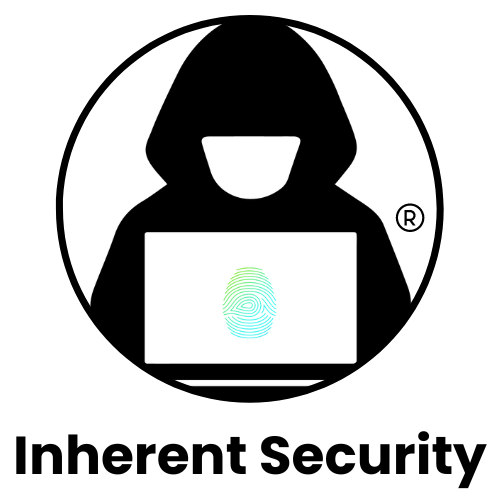DeepSeek vs. OpenAI: How This New AI Tool is Shaping Health Tech
Introduction
If you’ve been following the latest trends in artificial intelligence, you’ve probably heard the buzz.
One of the newest players making waves is DeepSeek, a cutting-edge generative AI tool that’s shaking up tech giants.
But what exactly is DeepSeek, why is it gaining so much attention, and how can it be leveraged in health tech while navigating the recent cybersecurity attack it experienced?
Let’s break it down.
What is DeepSeek?
DeepSeek is a next-gen generative AI platform designed to create, analyze, and optimize content, data, and processes across various industries.
Think of it as a Swiss Army knife for AI-driven solutions, whether it’s automating administrative tasks, generating insights from complex datasets, or enhancing customer interactions, DeepSeek is built to deliver.
What sets DeepSeek apart is its focus on customization and scalability, making it particularly appealing for sectors like health tech, where precision and adaptability are critical.
With great power comes great responsibility, and, as we’ll see, some significant challenges.
Why is DeepSeek Buzzing Right Now?
DeepSeek has been making headlines for two main reasons: its groundbreaking capabilities and the recent cybersecurity attack that put it in the spotlight.
On the one hand, DeepSeek’s ability to process vast amounts of data and generate actionable insights has caught the attention of industries like healthcare, where efficiency and innovation are paramount.
On the other hand, DeepSeek has been built on a fraction of the budget of its competitors while still delivering performance that rivals models like OpenAI's ChatGPT-4.
This shift is putting pressure on major AI firms to reassess their spending and efficiency strategies.
For health tech leaders, this presents opportunity.
The Cybersecurity Attack: What Happened and What It Means
This week, DeepSeek experienced a cybersecurity breach that brought it's systems to a halt.
While the full details are still emerging, here’s what we know:
The Attack: Hackers targeted DeepSeek’s infrastructure using a Distributed Denial of Service (DDOS) attack, causing intermittent outages in registration.
The Response: DeepSeek’s team acted swiftly to restore services but the full details are not yet known.
The Implications: For digital health leaders, this incident amplifies the importance of adequate cybersecurity measures when integrating AI tools into your organization.
Cybersecurity and Privacy Concerns Surrounding DeepSeek
As DeepSeek gains traction, industry experts and competitors have scrutinized the platform.
Concerns have risen about the following:
Data Privacy and Protection: DeepSeek stores all user data on servers in China, which can make it easier for the government to demand user data from the company.
It collects information you provide including: usernames, DOB, email addresses, telephone, password, text, audio, promote, chat history, and proof of identify information to name a few.
They retain your information "as long as necessary" to provide their Services per their Privacy Policy.
Compliance with Regulations: Meeting HIPAA, GDPR, and other global regulations will be challenging with their overseas storage and data privacy practices.
The White House, Italy, and other countries have given push back to the new platform due to these practices.
How DeepSeek AI Can Transform Digital Health
Enhanced Diagnostic Accuracy: By analyzing complex medical data, DeepSeek can assist in early and precise disease detection, leading to timely interventions.
Personalized Treatment Plans: DeepSeek's ability to process vast amounts of patient information enables the development of tailored treatment strategies, improving patient outcomes.
Operational Efficiency: By automating routine tasks and data analysis, DeepSeek allows healthcare professionals to focus more on patient care, potentially reducing burnout and increasing efficiency.
Support for Smaller Institutions: DeepSeek's low costs mixed with advanced capabilities could enable smaller hospitals and research groups to run sophisticated models on their data, democratizing access to cutting-edge AI tools in healthcare.
The Cybersecurity Risks of AI in Healthcare
As AI like DeepSeek integrates into healthcare, cybersecurity risks must be addressed:
Data Privacy Concerns: AI handles highly sensitive patient information, making it a prime target for hackers.
AI-Powered Attacks: Cybercriminals could attempt to manipulate AI-generated outputs.
Regulatory Compliance Challenges: Ensuring adherence to HIPAA, GDPR, and other data protection laws is essential but can be challenging due to the workings of neural networks.
Mitigation Strategies: Encrypting data, conducting risk assessments, and using advanced threat detection tools can help protect AI-driven systems.
Ethical Considerations: Should We Trust AI in Healthcare?
Here are some key ethical concerns:
AI Bias: AI models must be trained on diverse datasets to avoid skewed results.
Human Oversight: AI should assist, not replace, healthcare professionals.
Transparency: AI-generated recommendations should be explainable and traceable.
Regulatory Compliance: Clear guidelines must be followed to ensure AI is used responsibly.
How Does DeepSeek Compare to Other AI Models?
DeepSeek competes with heavyweights like GPT-4, Gemini, and Claude AI.
Here’s how it stacks up:
Strengths: Advanced NLP capabilities, predictive analytics, and strong healthcare applications.
Weaknesses: Content Censorship, Security and Privacy Concerns, and Integration and Adoption.
Best Use Cases: Ideal for healthcare analytics, automation, and decision support.
Cost Efficiency: Unlike its competitors, DeepSeek has demonstrated the ability to achieve high performance at a fraction of the cost, making it an attractive option for businesses looking to implement AI without excessive investment.
What’s Next for AI in Digital Health?
AI in healthcare isn’t slowing down anytime soon.
Here’s what to expect:
AI-Powered Medical Breakthroughs: Expect AI to revolutionize diagnostics, patient care, and medical research.
Stronger Cybersecurity Frameworks: AI security measures will evolve to protect sensitive patient data.
New Regulations: Governments will implement stricter AI governance policies to ensure responsible use in healthcare.
Potential for Democratization: Experts suggest DeepSeek’s affordability and accessibility could lead to a more widespread AI adoption in healthcare, especially for smaller hospitals and research institutions that previously lacked the resources to invest in AI-powered solutions.
Conclusion
DeepSeek AI is a trailblazer of generative AI, bringing innovation and efficiency, but also security and privacy challenges.
Before adopting this system, healthcare leaders must assess the security risks, ethical use, and compliance with industry regulations.
By striking the right balance, AI can help transform healthcare for the better.
